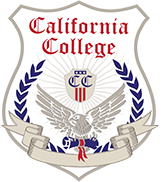Course Introduction
The BME diploma covers basic business management concepts and principles. The diploma is suitable for those preparing for managerial jobs, or for those who have just been promoted to managerial positions. The diploma covers the four functions of management: planning, organizing, controlling, and monitoring. In addition, it measures your ability to manage resources to achieve company’s objectives. This certification is necessary for every aspiring manager.
Course Description
This course is intended to introduce students to the basics of the how organizations are managed, with a special focus on the role played by a business firm’s strategy. Strategic management is concerned with how a firm sets its direction, chooses its business activities, and establishes and defends its position in a competitive market. This course will introduce you to concepts and tools that will help you to develop an understanding of how strategies are formed and managed, and how competitive advantage might be created and sustained.
Course Objectives
1.To expose you to a wide range of business practices and industry contexts including the strategies of major corporations.
2.To develop an analytical toolkit of concepts, frameworks and techniques you can use to identify, assess and develop competitive and corporate strategies.
3.To help you learn how to approach the analysis of unstructured problems and ambiguous situations encountered in the business world.
4.To provide an opportunity to further develop your skills in problem solving, analytical thinking, and oral communication.
Course Goals
• Explore the business environment and determine compatibility of individual skills within that environment
• Learn about the interrelationships of consumers and business
• Provide skills and knowledge transferable to professional management positions and other professional business positions (sole proprietorships, partnerships, corporations).
• Expose students to the many requirements necessary for the establishment and operation of a business
• Develop an understanding of the operation of the free enterprise system
• Emphasize the need for integration of knowledge in psychology, marketing,accounting, technology, business law, finance, entrepreneurship, economics, and production with management knowledge to encourage further education in each area
• Establish the existence of the element of risk in operating a business
• Be aware of the legal requirements (federal, state, and local) related to the operation of a business Recognize the impact of economic conditions on business success or failure
• Develop an awareness of the importance of a successful working relationship among employees and employees/employer
• Consider the role of government in regulating and supporting a business
• Examine the continuing and changing impact of technology in all aspects of business
• Study the role of ethics related to issues of management and business
• Recognize the changing responsibilities and expectations of managers in a global
economy
• Introduce theories of management and types of management
• Investigate the various career opportunities in the field of management.
Course Competencies
• Learn and use the specialized vocabulary of management
• Determine the advantages and disadvantages of different business organization and ownership
• Study the functions of management—planning, organizing, leading, and controlling
• Evaluate the theories of management and motivational theories
• Explore aspects of marketing as they relate to management decisions
• Research sources of financing for a business and the financial services available
• Recognize the need for financial planning, financial decision making, and the accurate maintenance of accounting records/financial statements
• Appreciate the requirements of effective human resources management—effective selection, development, supervision, evaluation, retention, releasing, and communication with employees
• Value the importance of maintaining required records for employee benefits, taxes, insurance, and government agencies
• Investigate types of organizational structure and levels in management—line/staff, line, functional, team concept
• Know the importance of applying up-to-date technology in all areas of the business operation including the management component
• Incorporate time management into personal applications and recognize the need for professional time management in the performance of professional duties
• Appreciate the role of networking in personal and professional advancement
• Study the influence of organized labor on business operation and government
• Be aware of the processes of operations management—production of a product, scheduling production, procuring materials, and managing inventories
• Reinforce the importance of human relations and business ethics when working with others and supervising others
• Apply a decision making-model to the process of determining management decisions
• Recognize the need to balance the demands of owners, shareholders, labor, government, regulatory agencies, and the public while providing goods and service competitively
• Understand the value of a good corporate or small business “image” and social responsibility
• Explore the importance of establishing equitable and appropriate policies and procedures for effective management
































